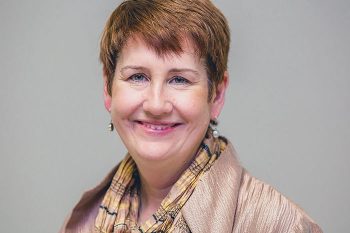By Michelle Maton, CFP®, CeFT®, Sr. Financial Planner

In 2021, a record-breaking 47.4 million Americans voluntarily quit their jobs. According to the Labor Department that amounts to about three percent of all workers in the U.S. It’s being called The Great Resignation, and it represents an unprecedented shift in the labor market. The pandemic has pushed a lot of people to focus on what’s really important to them, and for some, that’s meant re-thinking their work life, which is a good thing. What’s not good, however, is to make a major change without having a plan.
If someone is super stressed out at work, it’s hard to have the bandwidth to envision what change can look like and then plan for it, which explains why some people just up and quit without knowing what’s next. Those are the ones I worry about because it can be detrimental professionally, emotionally, and financially to be out of the workforce for a period of time while you figure things out. There’s a better way to go.
Big Dreams Require Good Plans
When I talk to clients who want to make a change, I start by encouraging them to take a little time and dream big. Maybe they want to start a business, go back to school, or retire early. Whatever they’re thinking, we walk through a process so they can be intentional about their choices and have the resources to achieve their goals.
Recently I worked with a young couple where the wife wanted to quit her job to become a physician’s assistant. She had always wanted to go to med school but for a variety of reasons hadn’t been able to do it. Now she wanted to find a way to fulfill her long-held dream.
The first thing we did was look at what it would take financially to change careers. She’d need four years of school, which meant four years of living on one income. In addition to tuition, they would need to pay for daycare for their child. We ran the numbers to see if they could swing it, looking at both the short-term and long-term impact. We found they didn’t have enough saved to cover the transition period, but the long-term prospects looked good because her income as a physician assistant would be higher than what she currently earned, which would justify taking out student loans to cover some of the costs. For the rest, we created a budget that allowed them to aggressively save money for the next year while she applied to schools.
Planning for a Job Change Where You’ll Earn Less
This couple needed a plan that would get them through a finite period where their income would be significantly reduced but would then increase to a higher level than before. Some career changes result in earning less income. In those cases, you need to think clearly about what parts of your lifestyle you’re okay with giving up, and what you’d be getting in return. You should also consider some practicalities. If your family receives medical coverage through your
job, factor in how that will impact finances. If you’re earning less, you’ll probably need to reduce your contribution to retirement savings. Do the math and see how it would impact your overall goals, such as the age you can retire and what your income looks like after that. Raising these issues isn’t meant to discourage anyone from switching to a less lucrative career. It’s just the opposite, because good planning increases the odds for achieving the outcomes you want.
Money Is a Tool for Achieving Goals
Now could be a great time for a career change, especially if it’s something you’ve always wanted to do. I like to remind clients that their money is meant for something. We need money to do the things we want, but our lives should not be informed by the accumulation of money. Rather, look at it as a tool to achieve your goals.
At The Planning Center, we help clients organize their financial lives first. Then, we talk about things they could do to make their lives more fulfilling. Sometimes that piece takes a while to figure out. It doesn’t always involve changing careers, but when it does, we plan for it. If you have some changes you’ve been wanting to explore, give us a call at The Planning Center, we are ready to help you dream big and plan accordingly.


